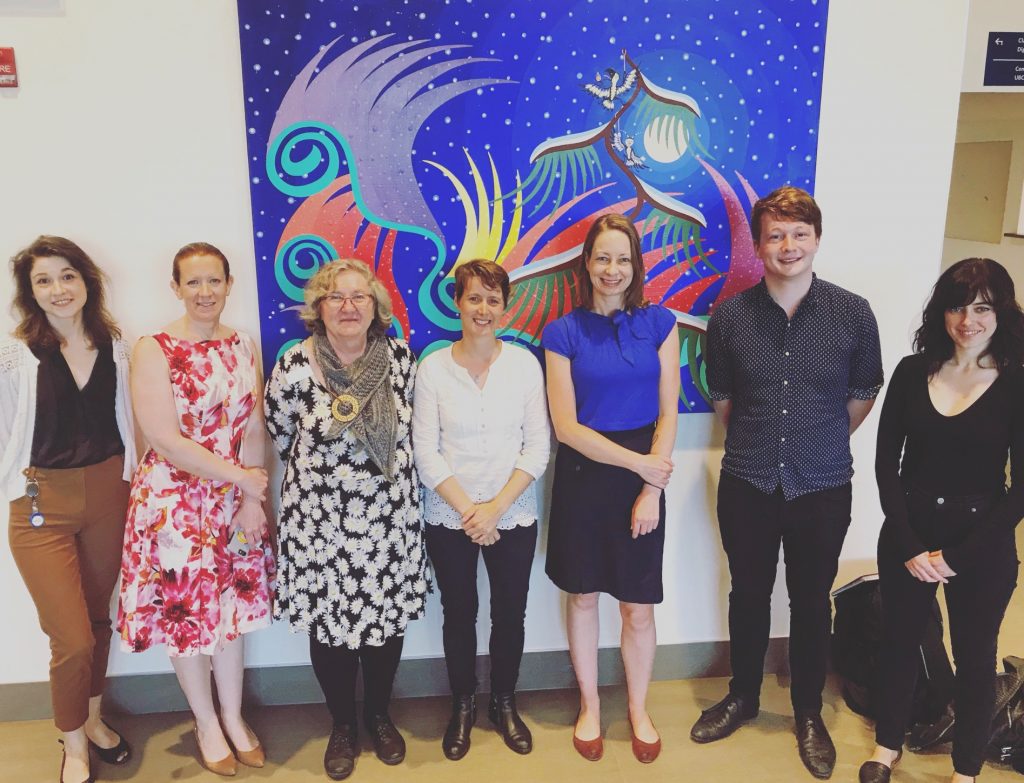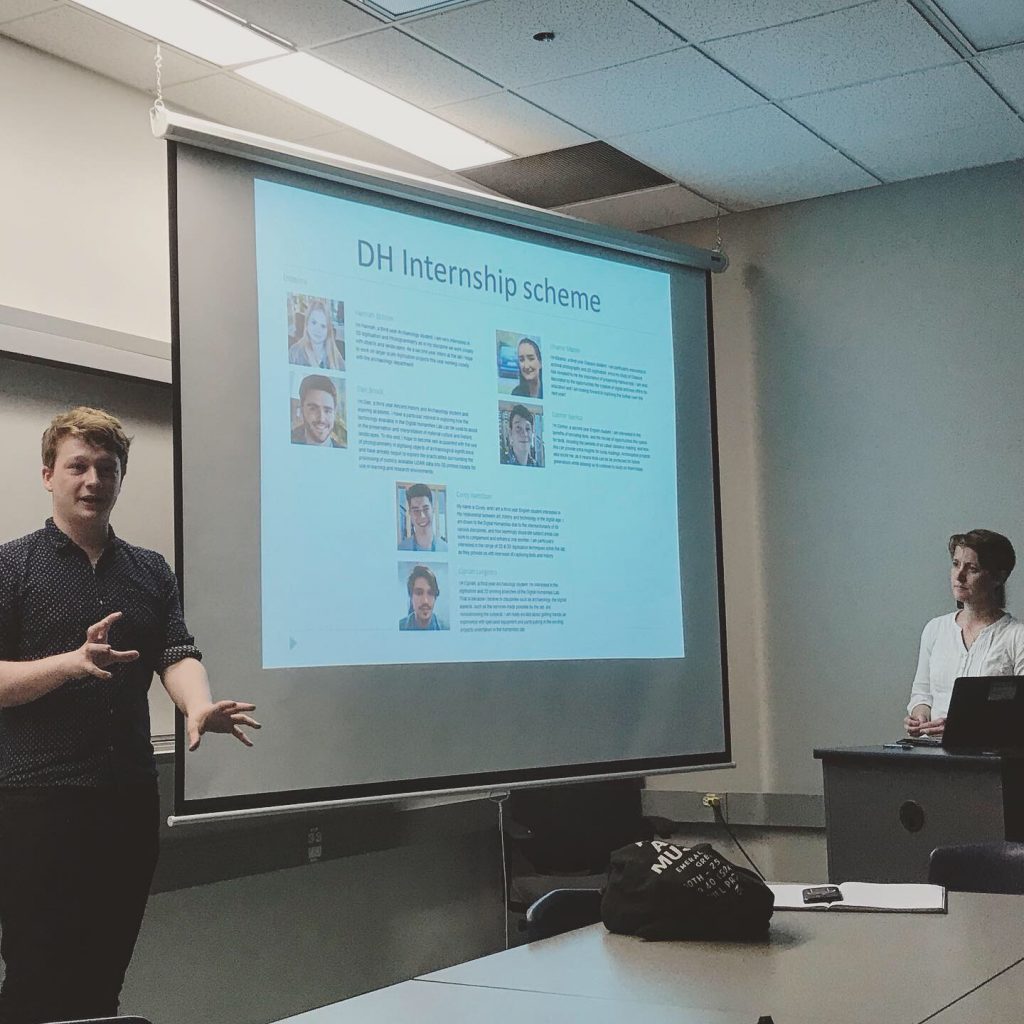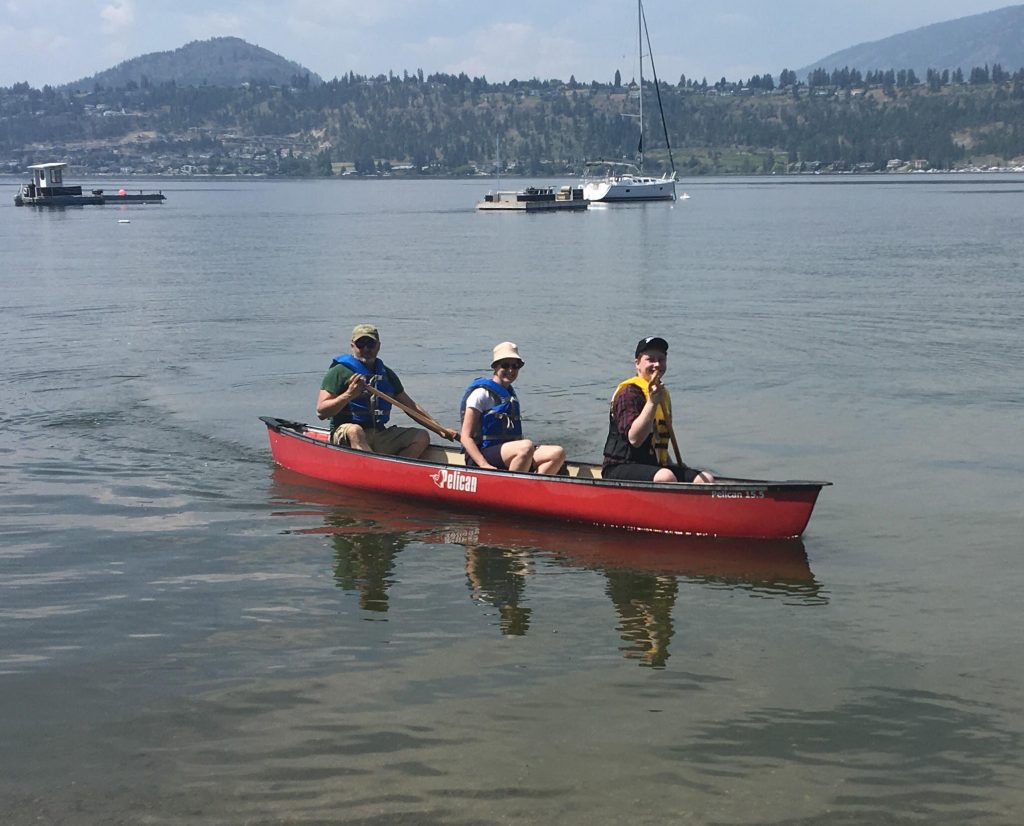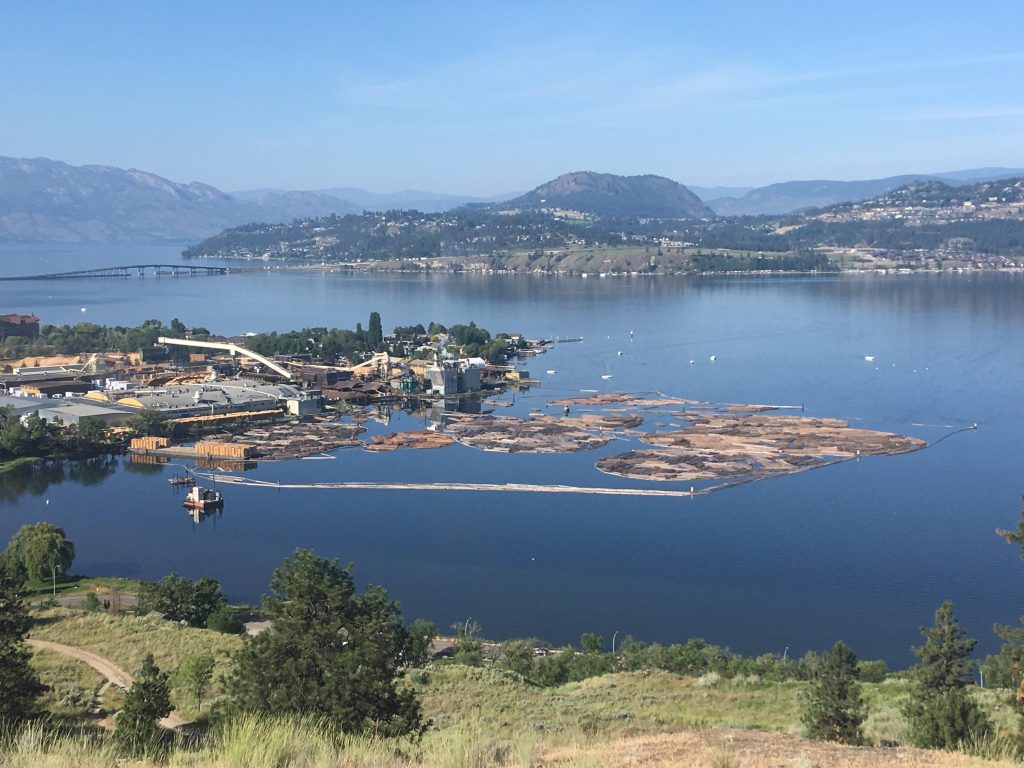Members of Exeter’s Digital Humanities Lab recently visited the University of British Columbia, Okanagan to to continue our very fruitful collaboration with the AMP Lab and the Faculty of Creative and Cultural Studies (FCCS). Following an initial visit with Prof. James Clark the previous year, Dr. Charlotte Tupman and 2nd-year UG student intern Connor Spence, who is one of our outgoing Digital Humanities interns, were very kindly hosted for the week by Prof. Karis Shearer, Director of the AMP Lab, and Dr. Emily Murphy, Assistant Professor of Digital Humanities, along with their student intern Stephen French.
One of the aims of our visit was to further our work on two training modules – one on audio digitisation and one on text encoding – which will be offered to Exeter and UBC-O students as online, self-paced modules. During the course of the week, we tested and edited our training modules, sharing them with members of UBC-O’s Department of World Literatures and Department of English and Cultural Studies and gaining valuable feedback during the process.
The audio digitisation module, led by UBC-O, will introduce the basics of digitising two analogue magnetic tape formats: reel to reel and compact cassette. It provides an introductory overview of magnetic tape formats, copyright considerations, assessing the condition of artefacts, setting up the digitisation workstation and digitisation process, and creating and naming files. Students will acquire the skills and theory required to operate and archive digital audio collections and assist with digitisation.
The text encoding module, led by Exeter, will introduce students to digital editing of texts. It will teach them the basics of the Text Encoding Initiative (TEI), giving an overview of how to encode information about the physical features and structure of a text, and how to identify specific entities and meanings within the text. The module will provide participants with the step-by-step skills to create basic machine-readable TEI XML files. In addition, by learning about the decision-making process that underlies a digital edition, students will be enabled to become more critical readers and users of digital texts.
We’re looking forward to launching these modules very shortly, and will update you here on the blog as soon as they’re available.
* * *
One of the features of our visit was a series of talks and workshops in which both UBC-O and Exeter had the opportunity to share some of the DH research that is happening at our institutions. Connor and I presented several of Exeter’s current DH projects, including Poetry of the Lancashire Cotton Famine, Hardy’s Correspondents and Pelagios Commons, and showcased the work of the DH Lab. We then heard from our UBC-O colleagues about some of their key projects including SoundBox, part of the SpokenWeb Partnership, which focuses on digitisation and performance of literary audio recordings from the late 20th century; Modernist Pedagogy Platform and Modernism, Feminism and the Ego-Network, focusing on modelling modernist networks and exploring women’s artistic and activist communities in the early 20th century; and International Research Confluence of Religious Cultures in Medieval Spanish Historiography, which examines the interactions between cultural and religious communities in medieval Iberia. From the resulting discussions it was clear that there were several areas of mutual research interest, as well as opportunities to learn from the complementary expertise at our institutions.
It also became clear during the course of the week that, like our own DH Lab, UBC-O’s FCCS has a strong relationship with its Library and Special Collections. The Chief Librarian & Associate Provost, Dr Heather Berringer, led us on a tour of the Library and new Commons facilities, which had been under construction when James and I were there the previous summer. We were joined on our tour of this impressive set of meeting rooms, lecture halls and labs by Paige Hohmann (Archivist), Marjorie Mitchell (Research Services Librarian specialising in Research Data Management) and Lori Walter (Scholarly Communication Librarian), and had the opportunity to speak with each of them about their respective roles and the nature of their digitally-focused work.

Meeting the teams in the new Commons Building. L-R: Paige Hohmann (Archivist), Heather Berringer (Chief Librarian), Marjorie Mitchell (Research Data Management), Charlotte Tupman (Exeter DH Lab), Karis Shearer (English), Connor Spence (Exeter DH Lab intern), Emily Murphy (Digital Humanities).
Our hosts could not have been more welcoming or more thoughtful. After our week’s work was done, Prof. Francisco Peña found time to take us out in his canoe on the beautiful Lake Okanagan, pictured below. We also made an early-morning trip up Knox Mountain – avoiding the bears – and were rewarded with some incredible views. A guided walk around the shores of the lake gave us the opportunity to visit the bird sanctuary with its nesting ospreys. Perhaps the most surprising wildlife, however, was to be found on the UBC-O campus, where Karis ensured that I could fulfil a life-long wish to see a marmot at close range by including them in that afternoon’s schedule (thanks, Karis)!
Connor and I returned to Exeter inspired with many new ideas and very much looking forward to working further with colleagues on the next phase of our collaboration: Press Play! Research Creation, Arts Entrepreneurship, and The Digital Archive. This initiative, jointly funded by the UBC-O Excellence Fund, the University of Exeter, and SpokenWeb-Concordia, will involve students at both universities being funded to conduct research on digital resources produced at the partner institutions. The program will feature a funded two-week exchange, and as part of this initiative students will devise and stage a public-facing exhibition that invites meaningful engagement with digital archives from the larger community. More news on Press Play to follow shortly…
Charlotte Tupman




